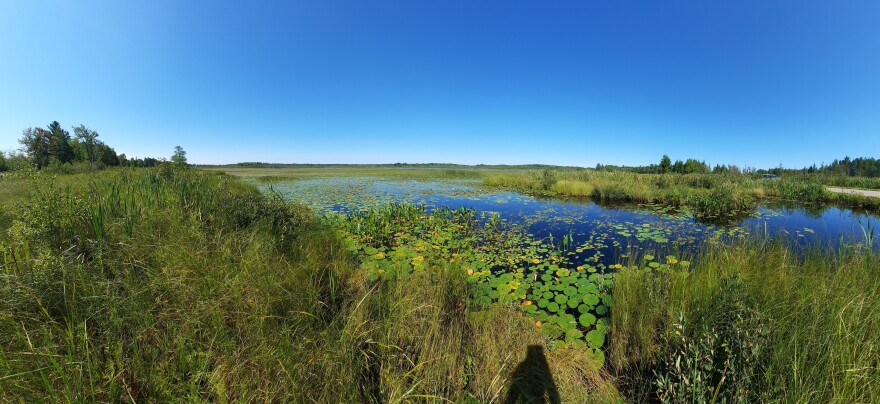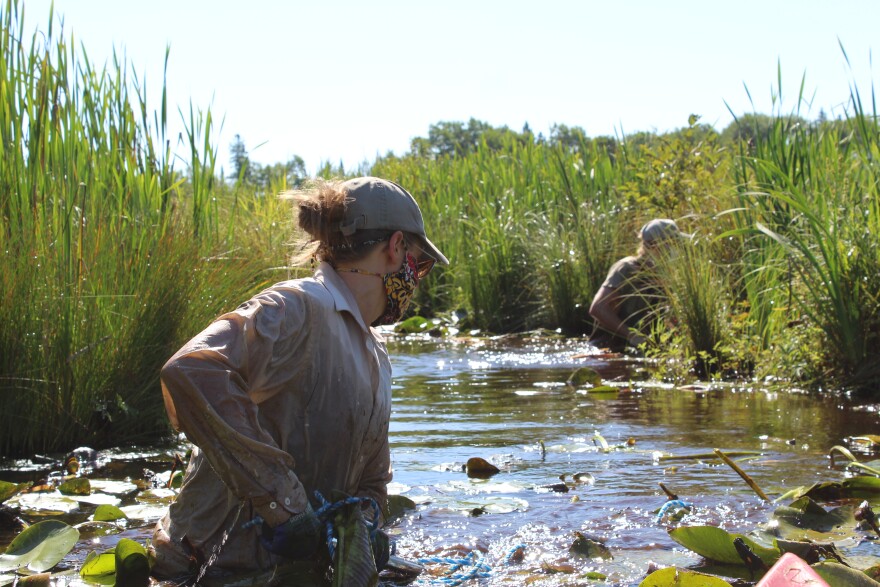Pete McGeshick II looked out upon Spur Lake and thought about what used to be.
“The lake was full,” he said. “The rice bed was full all the way around.”
Wild rice used to grow thick on the 113-acre undeveloped lake in eastern Oneida County.
It grew tall, too.
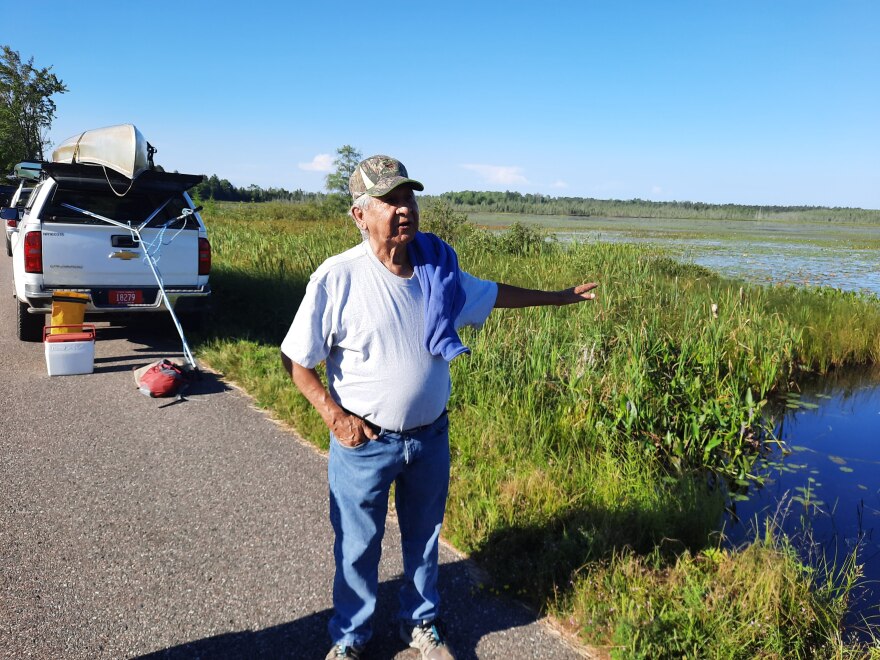
“You could come out here and you could see people harvesting wild rice,” McGeshick said. “A lot of them, you couldn’t even see because the wild rice was so high.”
McGeshick, a Sokaogon Chippewa tribal member and former Rice Chief, is 80 years old now.
He figures he first harvested rice on Spur Lake at age seven.
“This is the [lake] we’d come to first,” he said. “The rice bed would ripen first.”
McGeshick said a hundred people from the reservation in Mole Lake would be shuttled to Spur Lake in old Ford Model A’s, camping on the shoreline and harvesting the resource with a sacred place in their culture.
But by the 1990s and 2000s, the wild rice started to disappear, until it was gone altogether.
It was sad, McGeshick said.
“Yeah. We couldn’t come here and camp anymore. We couldn’t harvest here anymore.”
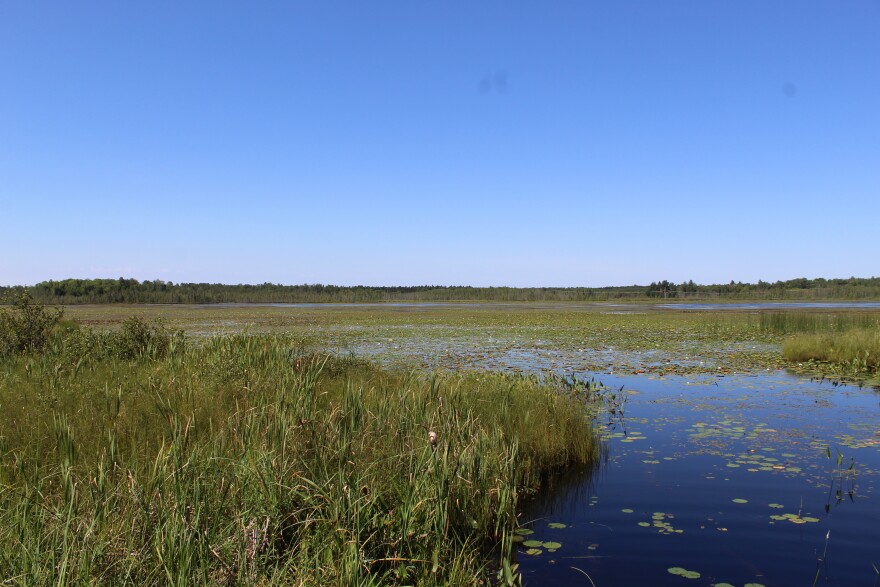
The last several decades have been unkind to wild rice in Wisconsin.
The resource has deep cultural roots in the state, especially for Ojibwe tribal members. But it has been disappearing on lakes and rivers.
The Great Lakes Indian Fish and Wildlife Commission estimates about half of the wild rice that once grew in Wisconsin is now gone. Five or six percent disappeared in the last decade.
Now, the DNR and a group of partners are trying to bring back what was lost on Spur Lake.
“We’re in the middle of a wetland on Twin Lakes Creek, which flows out of Spur Lake,” explained DNR regional ecologist Carly Lapin. “We are trying to improve water flow in the channel.”

Hip-deep in water, she threw a Y-shaped tool into the narrow stream. She then pulled it toward her as its sharp blades sliced through aquatic plants.
The reason wild rice isn’t growing in Spur Lake upstream, Lapin said, is the water level has gotten too high.
“Rice, ideally, needs about three feet of water or less,” she said.
Her team is trying to clear excess vegetation like lily pads and pickerel weed from Twin Lakes Creek. Hopefully, that will get the stream moving better and lower lake levels.
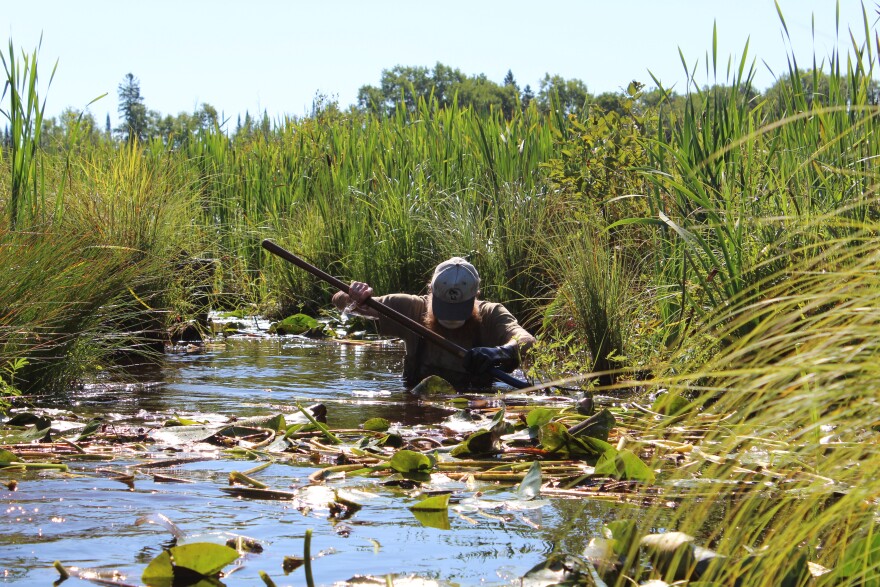
It’s “an experiment,” Lapin admits. She’s not sure if it will work.
“We’re trying whatever we can think of to try and get the water levels to go down,” Lapin said. “But we don’t know if this project will be successful or not.”
Even so, it’s worth the effort to attempt to revitalize historic wild rice lakes, Lapin said.
“This is one of the only places in the world where [wild rice] occurs,” she said. “I think it’s just an important opportunity. It has a lot of significance for a lot of people for a lot of different reasons. So I think that’s why it’s important and worth the effort.”

Legacy is one of the reasons some care about wild rice on Spur Lake.
Pete McGeshick III is the son of Pete McGeshick II, and he’s now a Rice Chief for the Sokaogon Chippewa.
The younger McGeshick has heard the stories of the Ford Model A caravans, the camping, and the harvest on Spur Lake.
“I can just imagine them being here,” he said. “The fires are going and the rice is being processed and people are picking.”
The lake even drew other Ojibwe tribal members from places like Lac Vieux Desert and Lac du Flambeau.
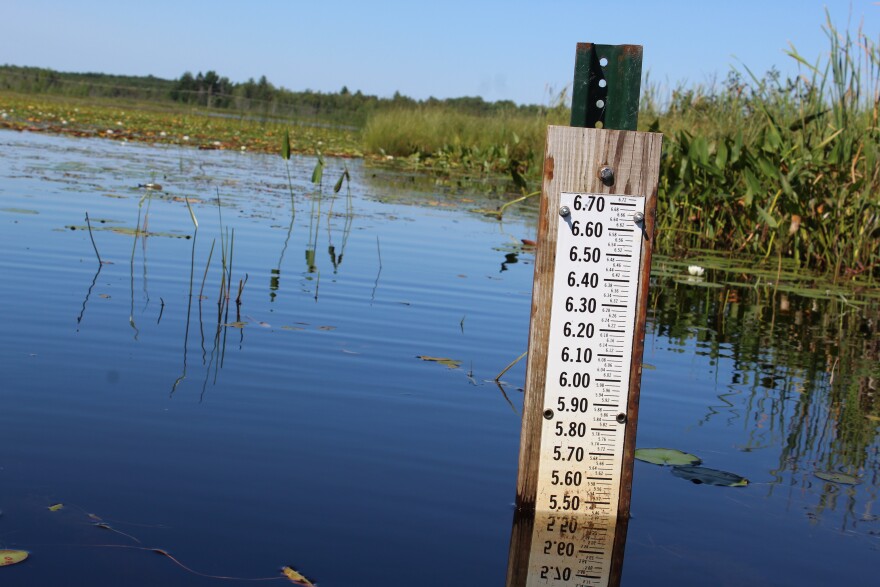
“Tribal people would come from all over, and now that we don’t have as many places to pick rice, those people aren’t coming,” McGeshick said.
He regrets that so many lakes are at risk of being only wild rice memories.
“It’s sad that I’m not picking rice out here,” McGeshick said, looking over Spur Lake. “By not having these lakes, we’re not taking our children and nieces and nephews to these lakes. All we’re doing is talking about where we used to pick rice.”
Maybe the work on Twin Lakes Creek will be effective.
Maybe the water level on Spur Lake will go down.
Maybe wild rice will take hold again.
Nothing would make Pete McGeshick III happier for his family, his culture, and his legacy.
“This one I want to see,” he said slowly. “It’s got my heart.”
